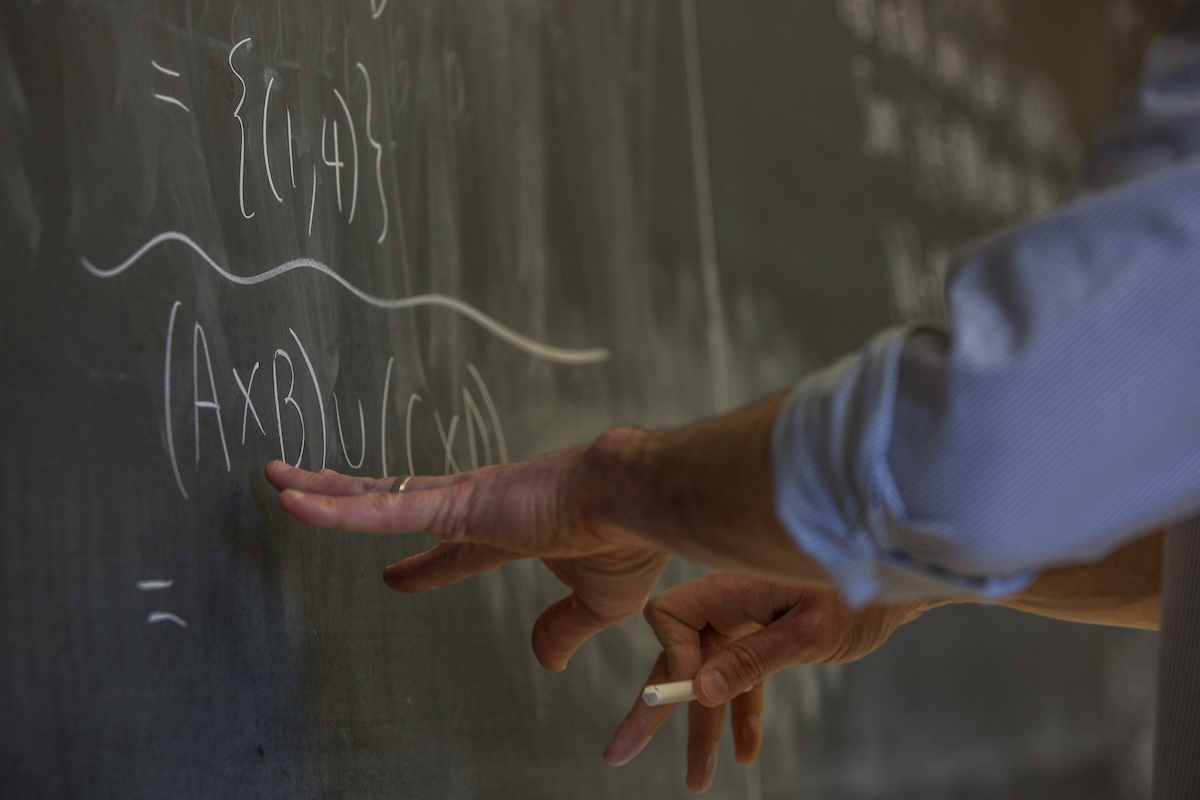It's Versatile
There are many jobs that utilize mathematics in our modern society, from engineering, data analysis, to actuarial and accounting work. A degree in mathematics shows employers that you are capable of solving technical problems.

The Department of Mathematics is committed to providing students with the foundational training necessary for graduate work as well as careers in education, business, industry, and public service. Our faculty come from all over the world and have a strong commitment to both research and teaching.
There are many jobs that utilize mathematics in our modern society, from engineering, data analysis, to actuarial and accounting work. A degree in mathematics shows employers that you are capable of solving technical problems.
Due to the highly specialized nature of mathematics-based jobs, as well as their high demand, job stability is much higher than in other fields. Job growth in mathematics-related fields is also growing faster than the number of qualified people entering the market, by almost 10%.
(Data from Forbes, AMA, and the National Math and Science Initiative)
If you like puzzles and games, Mathematics may be right for you.
Mathematics can teach you new ways to solve difficult problems.
Help us prepare the next generation of leaders in the mathematiical fields—and our society as a whole. We have numerous scholarships, grants, and programs accepting contributions from donors like you.